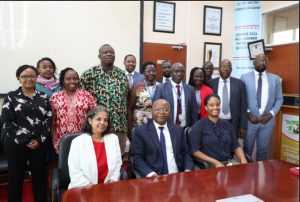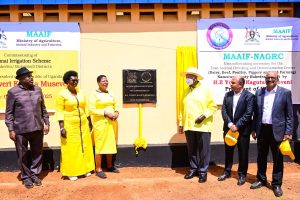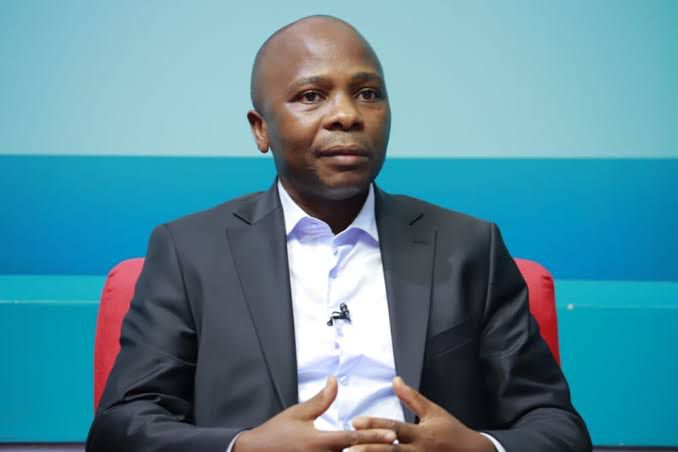The Vice Chancellor of Uganda Christian University, Aaron Mushengyezi, has called on Ugandan institutions to prioritize resilience, innovation, and purpose as cornerstones for sustainable growth.
Speaking at the 15th Financial Reporting (FiRe) Awards, held under the theme “Sustainability Practices and Reporting in Uncertain Global Times,” Mushengyezi stressed that “building resilient institutions is not just a passion — it is a responsibility.”
Delivering keynote address as Chief Guest, Mushengyezi shared practical insights on institutional transformation and leadership, drawing from his experience leading UCU and founding the Franciscan Investment Cooperative. He outlined four guiding principles for resilience and growth.
He emphasized the importance of consistency in mission and vision, urging institutions to stay true to their purpose through regular self-assessment. Second, he highlighted strategic resource allocation, advising institutions to spend only where it serves their mission.
Mushengyezi underscored that systems should serve people, not the other way around, ensuring that institutional processes are human-centered. Finally, he encouraged institutions to embrace a “business unusual” mindset, questioning outdated practices and adapting boldly to new realities.
Reflecting on UCU’s response to the COVID-19 pandemic, Mushengyezi emphasized that resilience involves adaptation and optimization.
“At UCU, we cut costs, reduced bureaucracy, and reinvested in our people and infrastructure. Today, we are leaner, stronger, and self-sustaining,” he said, challenging both public and private institutions to focus on building systems capable of withstanding economic shocks and technological disruptions.
The president of the Institute of Certified Public Accountants of Uganda (ICPAU), CPA Timothy Ediomu, highlighted the growing importance of sustainability and transparency in corporate reporting.
“Sustainability is about creating long-term value — balancing profitability with purpose, innovation with inclusion, and growth with environmental stewardship,” he said.
Ediomu also announced a landmark development: Uganda’s adoption of the IFRS Sustainability Disclosure Standards (IFRS S1 & S2), which will guide consistent and comparable sustainability and climate-related reporting. Early adoption begins in January 2026, with mandatory implementation in 2028.
He commended regulators, including the Capital Markets Authority (CMA) and Bank of Uganda, for aligning their frameworks with the country’s sustainability roadmap, urging institutions to “raise the bar, tell their stories truthfully, and uphold integrity.”
Representing the CMA, the Director for Market Supervision, Kizito Denis, reiterated the Authority’s commitment to integrating Environmental, Social, and Governance (ESG) principles into Uganda’s financial systems. “Sustainability is no longer just a moral obligation but an investment imperative,” he said, encouraging listed companies to adopt integrated reporting that captures both financial and non-financial performance.
The CEO of the Uganda Securities Exchange (USE), Paul Bwiso, commended local listed entities, including Stanbic Uganda Holdings, MTN Uganda, and Umeme Limited, for publishing sustainability reports aligned with global best practices. He announced that USE has developed Sustainability Guidance for Listed Companies, currently awaiting CMA approval, to help issuers integrate ESG principles into operations.
“At USE, sustainability is not just compliance — it’s leadership, stewardship, and a strategy for resilience and growth,” he said.
This year’s FiRe Awards attracted 119 participating entities, the highest in its 15-year history, reflecting Uganda’s growing commitment to transparency and sustainability. MTN Uganda Limited won the Gold Award for Integrated Report of the Year as well as the Sustainability Reporting Award.
The National Social Security Fund (NSSF) earned the Corporate Governance Reporting Award and Silver in Integrated Reporting. Stanbic Uganda Holdings Limited received the Bronze Award for Integrated Reporting and was recognized as the Best Listed Entity. In the Public Sector, the Law Development Centre (LDC) emerged as the winner for its exemplary reporting standards.
Among parastatals, NSSF led the category, followed by New Vision Printing and Publishing Company Limited and the Uganda National Oil Company (UNOC). The Infectious Diseases Institute (IDI) topped the Non-Profit Organisations category, while Makerere Retirement Benefits Scheme was recognized for excellence in Retirement Benefits Services.
The Chair of the FiRe Awards Committee, CPA Stephen Ineget, praised all participants for advancing Uganda’s financial reporting culture.
“Integrated reporting is not just compliance — it’s about communicating value creation, resilience, and long-term sustainability,” he said.
Celebrating 15 years of excellence, the FiRe Awards, organized by ICPAU in partnership with CMA, USE, and New Vision, continue to shape Uganda’s corporate governance landscape.
“The future will belong to institutions that dare to evolve, that lead with clarity of purpose, and that invest not only in profits, but in people, values, and impact,” Mushengyezi noted.






















